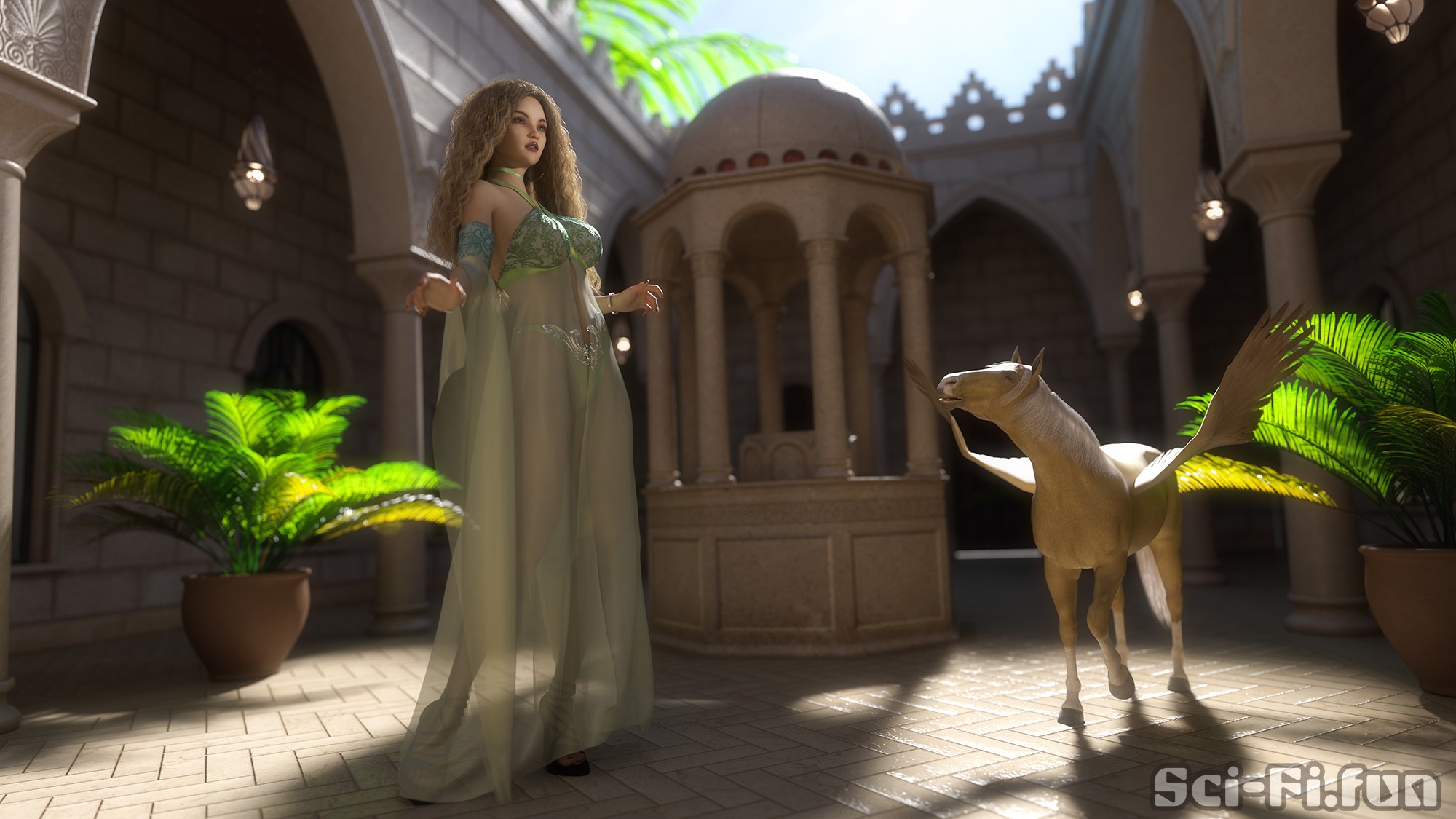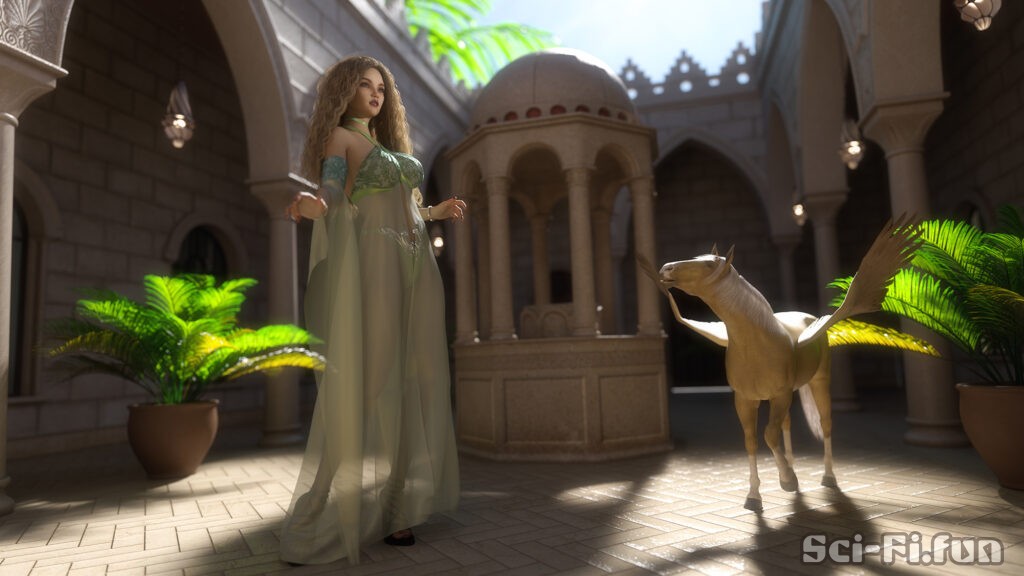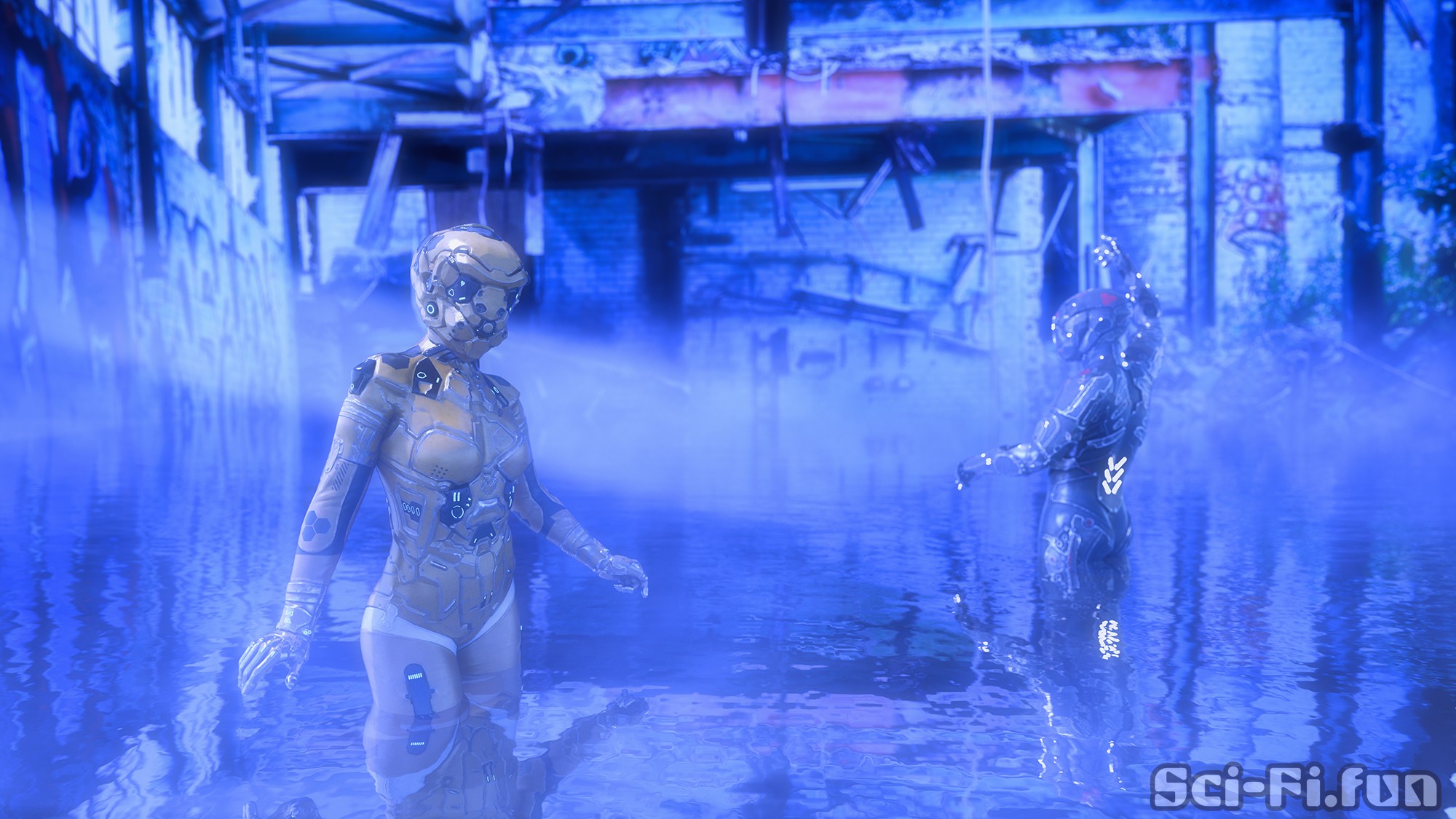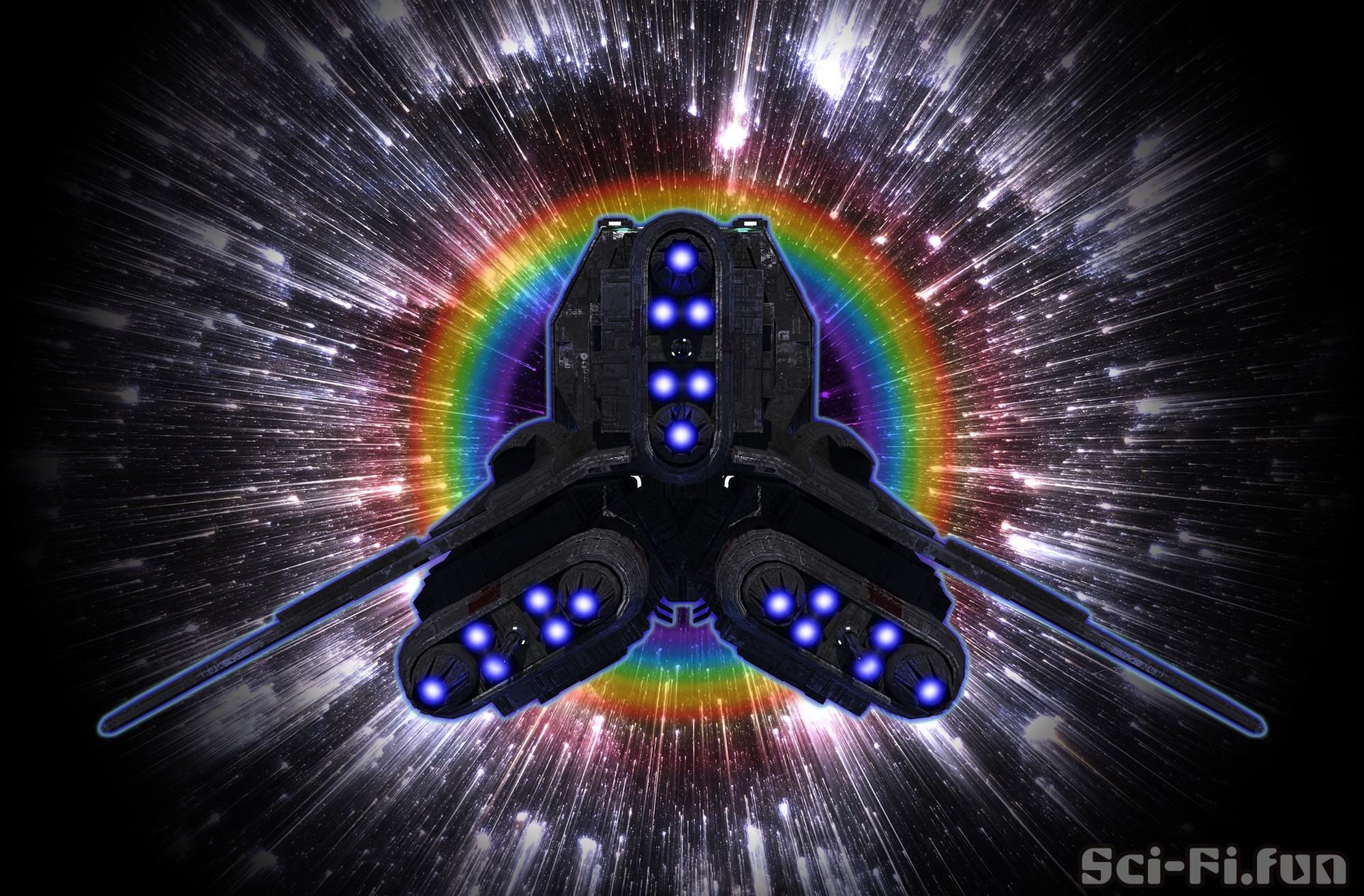ミューズのウーラニアー(Urania)は、金色のペガサスの子供と戯れる。
9人のミューズのひとりであり、占星術と天文を司る。言い換えると、未来と宇宙の事象を見守り、ときには介入する。人間界との接点は多く、国王や神官らが彼女に神託を授かるために訪れる。
ペガサスは天の象徴であり、雷鳴と雷光をもたらす。神獣であるペガサスは、ウーラニアーの神力を介して地上に恵みをもたらし、人間たちの傲慢さを戒めることもある。
子ペガサスはウーラニアーに育てられ、古馬になると人間界に放たれる。
神族は基本的に不老不死である。
そして、自然現象を操り、創造をしたり破壊をしたりもする。未来を見通せるウーラニアーは、数千年から数万年先の未来が見えている。予知ではなく、未来の歴史の一部を知っているのだ。
人間たちは、それを神の力と解釈する。
神の力とは、科学の力だ。
科学が芽生えていない古代の人々にとっては、科学は魔法であり神の業に見える。不老不死やペガサスは遺伝子工学の産物であり、自然を操るのは惑星工学によるものであり、未来予知は時間工学の成果だ。
神族は異世界からやってきた。
地球は生物進化の実験場だった。
爬虫類を先祖とする恐竜から、知的種族の誕生を試みたが、数億年をかけても強大化するばかりで知性の獲得には至らなかった。
実験は失敗し、リセットするために隕石を落とし絶滅させた。
次に試みられたのが哺乳類だ。
小さなネズミから始めて、原初の猿から類人猿、そして人類へと進化していった。進化を加速させるために、神族の遺伝子を初期の人類に導入した。彼らの期待通りに、人類は知性を発達させ、見た目も神族に近づいていった。これは意図した収斂進化だ。
途方もなく長い時間をかけた実験だが、神族にとっては時間は問題ではない。
ウーラニアーは未来を見ることができるように、遠い過去を見ることもできる。彼女はこの宇宙を創ったのが、別の宇宙の存在であることを知っている。神族を創ったのも、彼らなのだ。
生物が子を産み子孫を連綿と残していくように、神族は知性の誕生を促し未来へと紡ぐことを使命と考えている。
長い年月の間に、ウーラニアーは多くの地球人の男との間に子を設けた。神族の遺伝子を導入されている地球人とは生殖可能なのだ。直接、子を産むことは強い遺伝子介入でもある。その子孫が増えていけば、さらなる進化にもなるからだ。
生存している神族の数は残り少ない。神族といえども永久ではないのだ。宇宙に知性を存続させるための、新たな神族の登場が不可欠だった。
その候補のひとつが地球人だ。
ウーラニアーは地球人の可能性に期待していた。彼女が見る未来には希望があった。しかし、未来は不確定でもある。分岐点はいくつもあり、必ずしも1本道ではない。
数千年後、人々は文明を発展させ、知の探求を始める。未熟ながらも科学と技術を手にして、人類は宇宙へと踏み出していくだろう。
神族のことは忘れ去られ、誇張された神話になっていく。
「そろそろ、わたしたちは去る時期だな」ウーラニアーは思った。
人類がひとりだちしなければ、神族の後継者にはなれない。いくつかの種族が候補になっているが、どの種族が試練を超えられるかはわからない。
ウーラニアーは人類に思い入れがあるから、彼らに乗り越えて欲しかった。
神族は地球から去った。
ウーラニアーは最後まで残ったが、エジプト文明の勃興を見届けてから地球を離れた。
神族は未来の人類が次のステップに進むためのギフトを残していった。
それが太陽ゲートだ。
それを使えるだけの文明レベルになれば、さらならステップアップができるだろう。
神族は生まれたての恒星系に向かい、再び生命の誕生と進化を見守り、知性の発現を促す。
それが彼らの存在理由なのだ。
Urania, the Muse, plays with her golden Pegasus child.
She’ s one of the nine Muse’s and is in charge of astrology and astronomy. In other words, she watches over and sometimes intervenes in the future and the events of the universe. She has many contacts with the human world, and is visited by kings and priests to give oracles to her.
Pegasus is the symbol of heaven, bringing thunder and lightning. As a divine beast, Pegasus brings blessings to the earth through the divine power of Urania, and also warns humans against their arrogance.
The baby Pegasus is raised by Urania and released into the human world when it is at least four years old.
The race of Gods is basically immortal.
They can also manipulate natural phenomena, creating and destroying. Urania, who can see into the future, can see thousands or tens of thousands of years into the future. It is not a prediction, but a knowledge of a part of future history.
Humans interpret this as divine power.
The power of God is the power of science.
To ancient peoples, for whom science had not yet budded, science appears to be magic and the work of gods. Immortality and Pegasus are the products of genetic engineering, manipulating nature is the result of planetary engineering, and predicting the future is the result of time engineering.
The race of Gods came from other worlds.
The earth was a testing ground for biological evolution.
From the reptilian ancestors of the dinosaurs, attempts were made to create an intelligent species, but even after hundreds of millions of years, they only grew stronger and failed to acquire intelligence.
The experiment failed, and a meteorite was dropped on them to reset them and make them extinct.
Mammals were the next to be attempted.
Starting with small rodents, we evolved from primitive apes to apes and then to humans. In order to accelerate the evolution, the genes of the race of Gods were introduced into the early humans. As they had hoped, humans developed intelligence and became closer to the Gods in appearance. This is intended convergent evolution.
It was an experiment that took a tremendous amount of time, but time was not an issue for the race of Gods.
Just as Urania can see into the future, she can also see into the distant past. She knows that this universe was created by beings from another universe. It was they who created the God race.
Just as a living being gives birth to a child and leaves a line of descendants, the race of Gods considers it its mission to encourage the birth of intelligence and weave it into the future.
Over the years, Urania has had children with many Earth men. It is possible to reproduce with an earthling who has been introduced to the genes of the God race. Directly producing a child is also a strong genetic intervention. If the number of offspring increases, it will lead to further evolution.
There are only a few of the race of Gods left alive. Even the race of Gods is not eternal. In order to keep intelligence alive in the universe, it was essential for a new race of Gods to appear.
One of the candidates was the Earthlings.
Urania had high hopes for the potential of earthlings. There was hope in the future as she saw it. However, the future was also uncertain. There are many fork in the road, and it is not always a straight path.
In a few thousand years, people will develop their civilization and begin their quest for knowledge. With science and technology in hand, though still in its infancy, humanity will step out into space.
The race of Gods will be forgotten and become an exaggerated myth.
“It’s time for us to leave,” Urania thought.
The human race must stand alone to become the heir of the Gods. Several races are candidates, but there is no telling which one will survive the ordeal.
Urania had feelings for the human race, and she wanted them to overcome.
The race of Gods left the earth.
Urania remained until the end, but left the earth after witnessing the rise of the Egyptian civilization.
The Gods left behind a gift for future humans to take the next step.
That is the Sun Gate.
If we can become civilized enough to use it, we will be able to take a further step forward.
The race of Gods will head to the newborn star system to watch over the birth and evolution of life again, and encourage the emergence of intelligence.
This is the reason for their existence.




